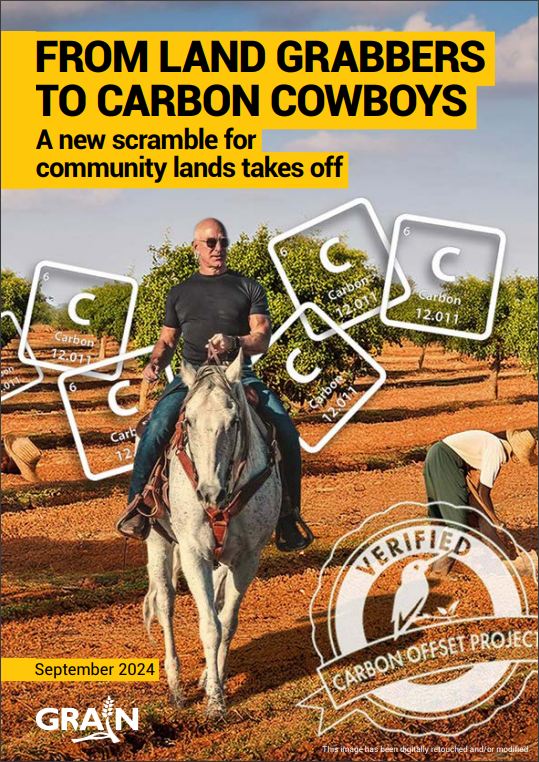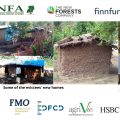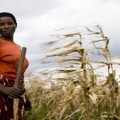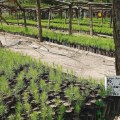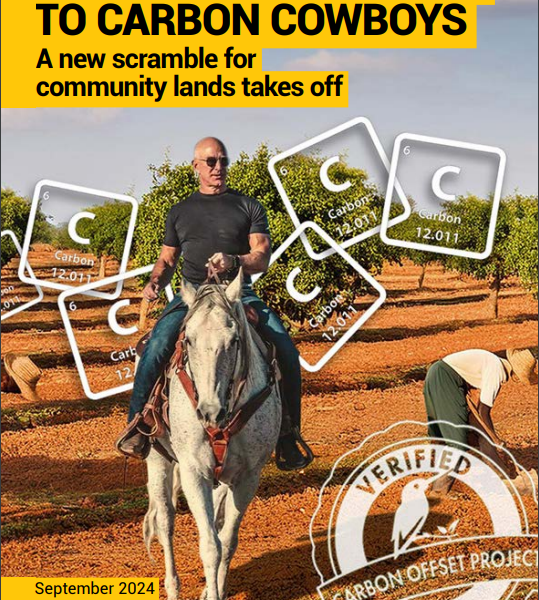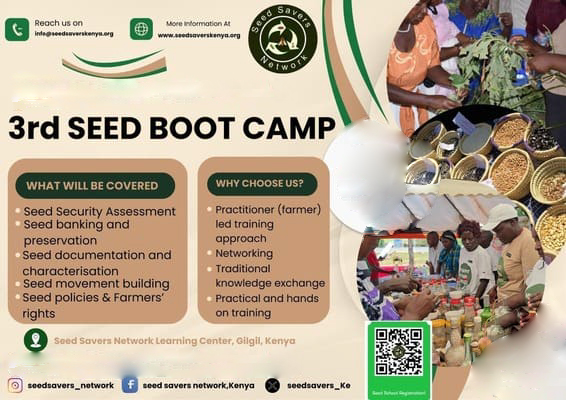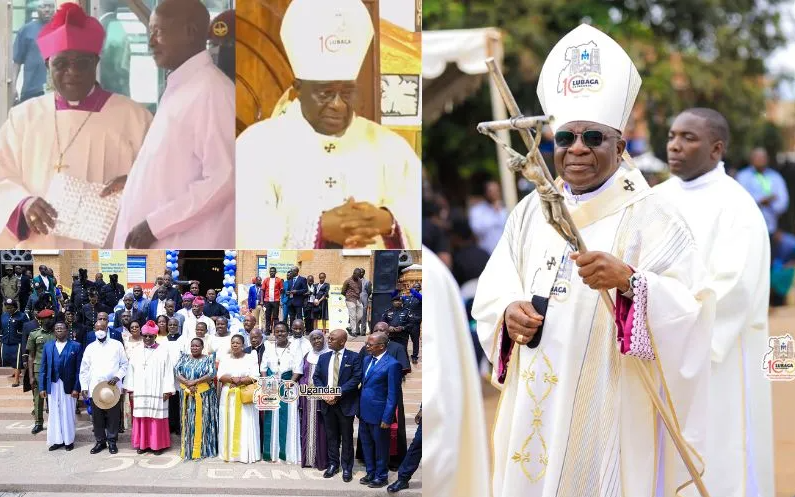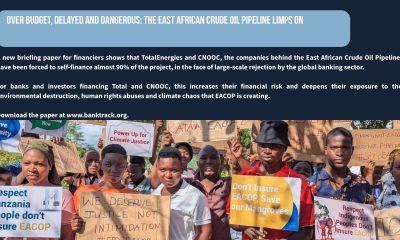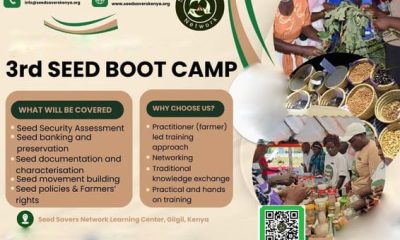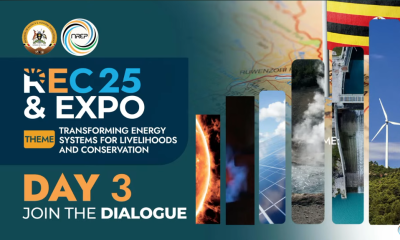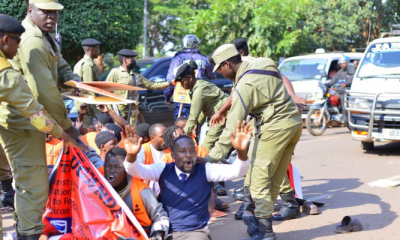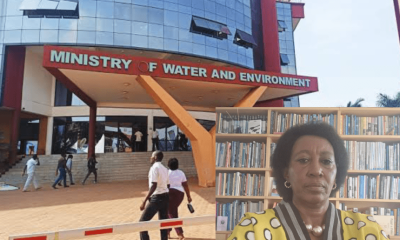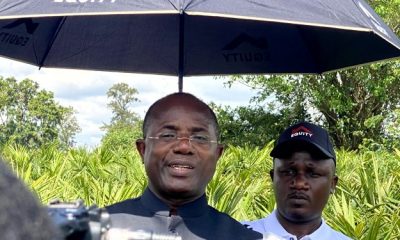By Witness Radio Team.
A new GRAIN research has revealed that carbon offset projects, often involving large-scale tree and other crop planting, contribute to a new wave of land grabbing in the Global South. The findings suggest that these projects, driven by corporate interests and international environmental agreements, are displacing thousands of communities and threatening small-scale farmers’ independence.
A report titled “From Land Grabbers to Carbon Cowboys: A New Scramble for Community Lands Takes Off,” released by GRAIN, an international non-profit organization supporting small farmers and social movements, highlights the scale of this growing problem. Since the signing of the Paris Agreement in 2016, the report identified 279 large-scale tree and crop-planting projects covering over 9 million hectares of land across the Global South, equivalent to Portugal’s size.
The projects are registered under major voluntary offset programs, including the American Carbon Registry (ACR), Climate Action Reserve (CAR), Gold Standard (GS), Verra (VCS), BioCarbono (BC), Cercarbono (CV), and Plan Vivo (PV).
The report claims that Africa has been the most affected region, with over 5.2 million hectares of the 9 million allocated to carbon offset projects. According to the report, this has led to a new form of “carbon colonialism,” with corporations and NGOs from the Global North using the lands of indigenous communities for their own economic and environmental agendas.
“There is a clear colonial dynamic at work,” the report reads. “Companies and big NGOs from the North are once again exploiting the lands of communities in the Global South for their benefit. For instance, much of the vast eucalyptus plantations managed by Brazilian paper giant Suzano, which is involved in three large-scale carbon plantation projects, have been taken from Brazil’s indigenous and traditional peoples.”
This new wave of land grabbing is compared to the 2007–2008 global land rush when hundreds of communities were displaced to make way for large-scale industrial farms. These same global giants are back, but with a different mission: securing land for carbon plantations.
Devlin Kuyek, a researcher with GRAIN, points out the deception at the heart of these projects. “Companies often persuade farmers to sign contracts that require them to plant and maintain trees on portions of their land. However, within a few years, these trees overtake significant areas of farmland that would otherwise be used for food production, causing devastating impacts on local food security and access to land.”
Since the 2016 Paris Agreement, carbon offset projects, primarily involving tree plantations, have led to increasing conflicts over land use and displacement of communities. The push for carbon credits through tree planting has also triggered what activists and researchers call “carbon colonialism.”
For years, activists and scientists have warned that carbon offset schemes, mainly through tree planting, would lead to surges in land grabbing, especially in the Global South. “These warnings are now proving true,” says GRAIN researcher Ange-David Baïmey.
The report‘s primary concern is the shift from communal land management to privatized land contracts. Large-scale plantations—often growing eucalyptus and acacia, species known for their environmental impacts—displace traditional land uses, disrupt ecosystems, and restrict local communities’ access to their lands. Farmers who participate in these schemes are frequently misled, receiving far less compensation for their involvement than initially promised. Payments for carbon credits often fall short of covering the farmers’ losses, leaving them in a risky position.
Under these contracts, farmers must provide proof of land ownership, which then transfers the rights to the carbon sequestered in the trees and soil to the project backers. While these deals may not forcibly displace farmers, they represent a form of control over the land that undermines farmers’ autonomy and limits their ability to use their land as they see fit.
Uganda has also become entangled in this new form of land grab. For example, the Swedish hamburger chain Max Burgers has been buying carbon credits from a project called Trees for Global Benefits, which was managed by the Ugandan organization Ecotrust in 2003. While the project claims to avoid displacing farmers by encouraging them to plant trees on their lands, the report reveals troubling realities. Participating farmers sign contracts requiring them to grow and maintain trees, receive seedlings, some training, and periodic monitoring in return for payments from the carbon credits sold to Max Burgers to offset their carbon footprint.
However, this arrangement has come at a cost. The report notes that this scheme has accelerated food insecurity and poverty among local farmers. An investigation by Swedish journalist Staffan Lindberg in Aftonbladet in May 2024 revealed that some farmers who planted trees for Max Burgers’ carbon credits have resorted to cutting them down for charcoal production, driven by hunger. The trees, initially planted on their farmland, have left them with little room to grow food.
Samuel Byarugaba, a farmer quoted in the report, shares his experience: “I used to be something called a model farmer. People came to me to learn about farming, and I was proud to show off our farm. We had enough food to feed ourselves and could sell the surplus. Now, it’s all gone.”

